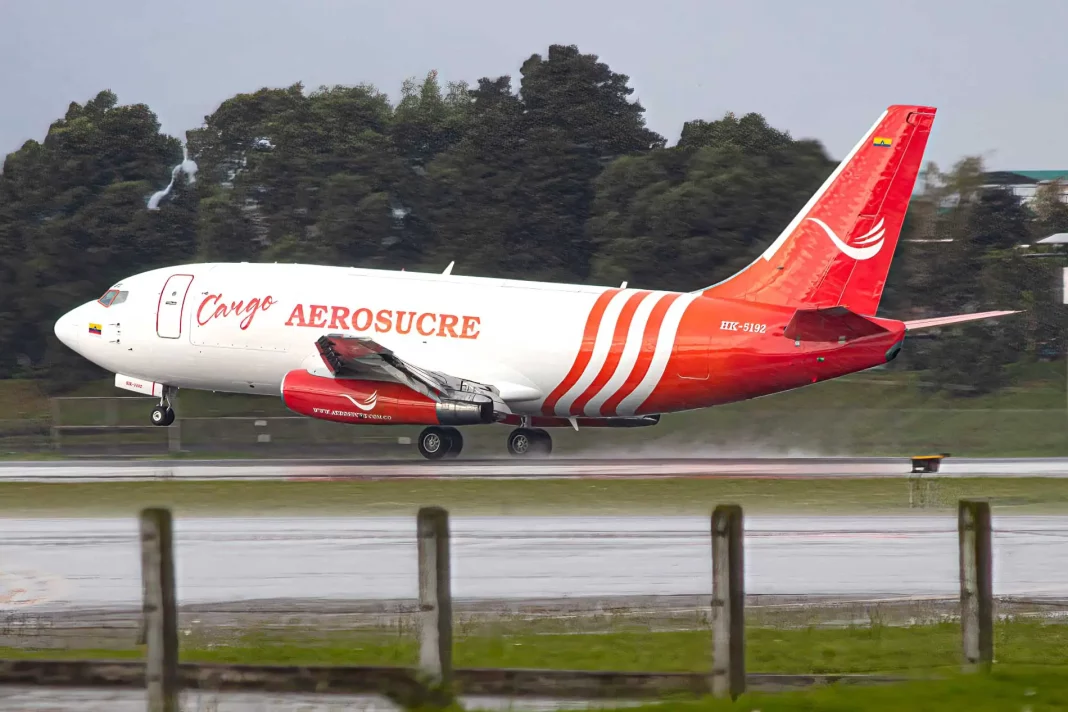By Aviacionline
Late Takeoff, Excess Weight Cause Near-Miss for Boeing 737-200 in Colombia
Aeronáutica Civil de Colombia, the state body in charge of regulating civil aviation in the South American country, has published the final report on the serious incident involving an Aerosucre Boeing 737-200 that occurred in February last year at Germán Olano Airport in the city of Puerto Carreño.
See also: FAA Takes Action Following Recent Incidents in U.S. Commercial Aviation
On 3 February 2022, the Aerosucre Boeing 737-200 registered as HK-5192 was performing a non-scheduled air cargo transport operation between the aforementioned aerodrome and El Dorado International Airport in Bogotá. Five occupants were on board: the two pilots in charge of flying the aircraft, an observer first officer, an aeronautical technician and an operations dispatcher.
The Boeing 737-200 experienced a near-miss incident after taking off from Germán Olano Airport, with the late rotation and excess weight cited as primary factors. The plane struck a tree approximately 250 meters from the runway’s end, causing the number 1 engine to lose thrust. Security cameras captured the aircraft narrowly clearing power lines and residential houses.
After reaching an altitude of 2,500 feet and flying roughly 30 nautical miles from the airport, pilots requested to return, activating established ground handling protocols. The plane landed safely without further assistance, and all five occupants exited unharmed.
Colombian investigators determined the late rotation resulted from the aircraft’s extreme weight and atmospheric conditions during takeoff. The calculated weight was 49,240 kilograms, while the actual weight should have been limited to 48,965 kilograms due to rising outside temperatures. The excess weight caused a delay in acceleration and increased distance to reach rotation speed, reducing the margin for avoiding obstacles.
The pilot-in-command pulled the yoke back at 138 knots, but the aircraft only lifted off the ground at 151 knots. The final Aeronáutica Civil report cited “overconfidence on the part of the crew” in assuming weight reduction during taxiing and the “low situational awareness” to anticipate performance-affecting changes. The operations dispatcher’s influence to proceed despite limited performance conditions was also noted.
Furthermore, the weight and balance calculation failed to account for the weight of the three occupants accompanying the pilots, adding to the excess weight during takeoff.
[ad_2]
Source link



